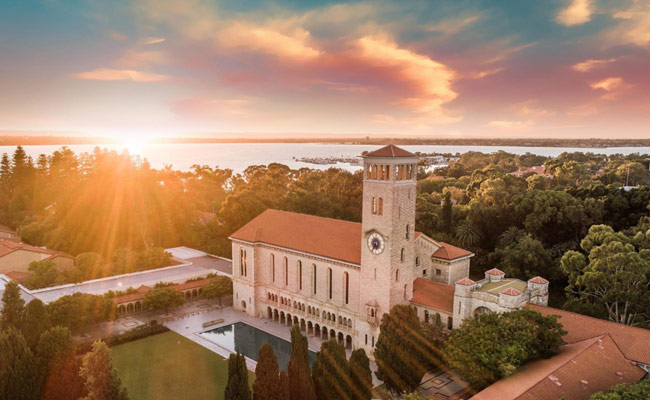University of Western Australia: Biomedical engineering grads break new ground
They come from all walks of life and each has different dreams for the future but this Friday 17 December, six students will become the first to graduate in biomedical engineering from The University of Western Australia.
Evan Savigni, Stuart Jardine, Jacob McDermott, Lucas Cottrill, Daniel Smith and Emmett Morris are among 3,500 students from UWA’s 21 schools who will graduate this week, with the first ceremonies to be held today.
Program Chair of Biomedical Engineering from UWA’s School of Engineering Associate Professor Brendan Kennedy, who is also head of the Bioimaging Research and Innovation for Translational Engineering Lab (BRITElab) at the Harry Perkins Institute of Medical Research, said there were 19 students in the first biomedical engineering cohort in total, with the remaining 13 expected to graduate in 2022.
Biomedical engineers work with medical professionals to research, design and implement ways to improve health care and medical services, combining their scientific and engineering knowledge to find solutions in the treatment and prevention of disease.
“UWA launched a new teaching program in biomedical engineering in 2016, the only university in WA to offer a degree in the subject, in response to a growing demand for healthcare solutions coupled with rapid advances in technology,” Associate Professor Kennedy said.
“These are students who may one day be working on the next bionic eye, implant to control epilepsy or tissue regeneration for patients recovering from cancer, all biomedical engineering innovations.”
Professor Brendan Kennedy
“These are students who may one day be working on the next bionic eye, implant to control epilepsy or tissue regeneration for patients recovering from cancer, all biomedical engineering innovations.”
In a happy twist, one of the new grads will head straight into a job at OncoRes Medical, a UWA start-up company developing technology that was invented in Associate Professor Kennedy’s lab at UWA and the Harry Perkins Institute, in collaboration with the WA Department of Health.
“We developed a handheld imaging tool to help surgeons better identify cancerous breast tissue, potentially reducing the need for follow-up surgery,” Associate Professor Kennedy said.
In 2020, the MedTech company was awarded ‘Breakthrough Device Designation’ status from the US Food and Administration (FDA) to expedite development of its innovative real-time tool, a development Associate Professor Kennedy describes as hugely encouraging in getting to market.
“OncoRes now employ 16 people based in their Nedlands office (including nine UWA graduates) and it is great news the company has been able to employ one of our first biomedical engineering Masters graduates as well as one of our undergraduate students and a recent PhD graduate,” he said.
“It’s fantastic for OncoRes that UWA is now producing industry-ready biomedical engineers. It’s also great for the WA MedTech ecosystem, especially with the state’s first ever Health and Medical Life Sciences Industry Strategy which was recently announced”, OncoRes Chief Operating Officer and Chair of the Industry Advisory Panel for the biomedical engineering program, Dr Simon Graindorge, said.
“The innovations and impacts in this field are limitless – for students interested in technology and engineering who’d like to make a real impact on people’s lives and use their STEM skills to make a difference, it really is a high-growth field of the future,” Associate Professor Kennedy added.

